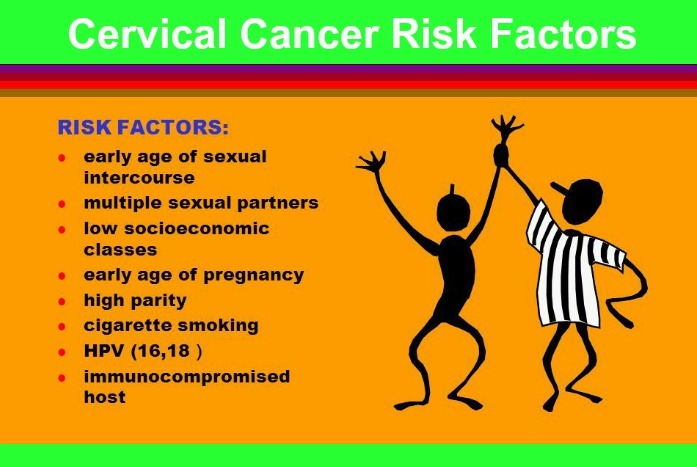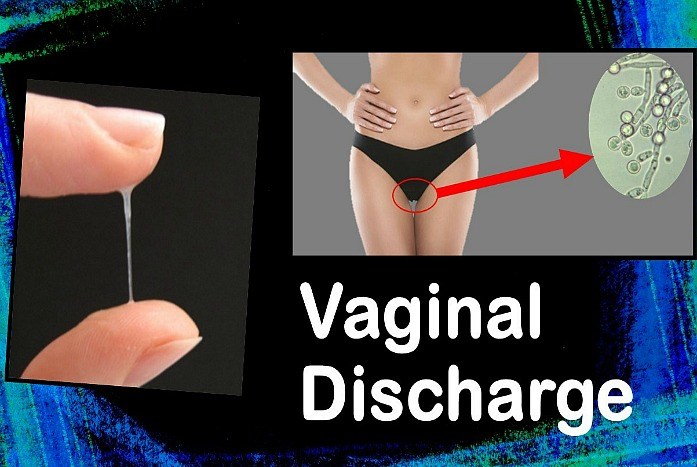Cervical cancer is considered as one of the most common cancers in women around the world[1]. The American Cancer Society guesses that around 12,900 new cases of this cancer will be diagnosed plus around 4,100 females will die from this cancer in 2015[2]. These beliefs are shocking but true. In Cervical Awareness Health Month support, find how regular Pap tests, the HPV vaccine, and knowing the warning signs and symptoms of this cancer could save a life. This cancer happens in the cells of your cervix, the lower area of the uterus connecting to the vagina. One of the scariest things about cervical cancer is that it doesn’t show any symptoms in the early stages. After this disease has spread to your bladder, liver, lungs or intestines, its symptoms are more prominent. You must consult your doctor if you notice any unusual symptoms or changes affecting your reproductive organs. Here are the top 11 warning signs of cervical cancer you need to know. Keep reading this article on EffectiveRemedies to understand more!
- Irregular Periods May Increase Ovarian Cancer Risk
- Bacon, Booze, And Obesity Associated With Stomach Cancer
Cervical Cancer – Don’t Ignore These Warning Signs
I. Cervical Cancer Risk Factors
Knowing the risk factors for this cancer is also very vital for timely detection or prevention.
With this information, females can identify if they’re likely at risk of developing this disease.
- Diet: A poor diet can result in a state of being obesity or overweight in women, which increases the chance of developing cervical cancer[3].
- Infection With HPV (Human Papillomavirus Infection): HPV virus is the main cause of cervical cancer[4]. It’s transmitted through sexual intercourse and can often be detected with one Pap smear or by detection of warts in your genital area.
- Genetics: Females who have one genetic history of this cancer have three times the chance of developing this disease[5].
- HIV: This virus weakens your immune system and puts your body at a higher chance of becoming infected with HPV[6].
- Consumption of snuff or tobacco[7].
- Early age of initial sexual intercourse.
- Menopause after age 52[8].
- High number of children.
- High blood pressure[9].
- Exposure to high estrogen levels.
II. Warning Signs Of Cervical Cancer
1. No Symptoms
Cervical cancer is a severe disease that usually presents without symptoms at all in the early stages[10]. You should have regular checkups and undergo screenings for the initial signs of the disease if you are at heightened risk of this cancer. HPV infection and sexual activity with various partners, or with one partner who has other sexual partners, are risk factors of this cancer. As above, HPV is one of the common causes of cervical cancer. Smoking also increases your risk. When the cancer advances, you’ll likely experience evident early warning signs, such as pelvic pain, urinary abnormalities, pain during sexual intercourse, and abnormal vaginal bleeding. It is advised to see your doctor immediately if you see these symptoms.
EffectiveRemedies Partner Solutions

Ask a Doctor Online and Get Answers in Minutes, Anytime!
Have medical questions? Keep asking questions to a Verified Expert until you get the answer you need.
2. Pain During Intercourse
Painful intercourse is one of the important warning signs of cervical cancer[11]. This symptom shows that this cancer has spread throughout reproductive organs and tissues. Aside from the pain, you may also suffer from other symptoms, such as foul-smelling and thick vaginal discharge. There are other possible causes for this particular problem, like an infection or STD. Don’t ignore this symptom. You should get the cervix examined by your doctor.
3. Pelvic Pain
Pelvic pain is also one of the top warning signs of cervical cancer[12]. Aches and cramping are a normal part of the menstrual cycle and don’t usually show the presence of this disease or any other serious condition. But, pain that occurs more frequently and persists for longer periods could be one sign of cervical cancer. You may suffer from pelvic pain at unusual times, and this pain may suddenly start at any time during the month if suffering from this cancer. Additionally, such pain usually doesn’t occur unless this cancer is in one very advanced stage.
You should visit your doctor to find out the accurate cause and rule out the cancer possibility if you have suffered from pelvic pain or pressure.
4. Abnormal Vaginal Bleeding
One untimely bout of vaginal bleeding, which occurs regularly, could be one indicator of cervical cancer[13]. This could be due to other medical conditions, like a hormonal imbalance, one infection in the pelvic organs or pelvic inflammatory disease. When cancer spreads to nearby tissues, it creates abnormal, new capillaries that easily break and cause bleeding. Such bleeding can happen between menstrual periods, after menopause, after sexual intercourse, and even after one pelvic exam. You have to contact your doctor if you suffer from bleeding between your menstrual cycles or following sexual intercourse.
5. Unusual Vaginal Discharge
A little bit of odorless, clear vaginal discharge is normal. But, if the vaginal discharge has an irregular appearance or increases, smells foul, it could be one sign of cervical or infection or endometrial cancer[14]. The vaginal discharge could be pale, heavy, watery, mixed or brown with blood when suffering from this cancer. If you experience the symptoms, you should report it to your doctor immediately.
6. Discomfort While Urinating
Cervical cancer can cause discomfort during urination. Therefore, it’s one of the most prevalent and obvious symptoms of the deadly disease. Urinary discomforts consist of burning, a tight sensation or stinging while urinating. Such symptoms happen when this cancer has spread to nearby tissues. This needs immediate attention to inhibit further damage. But, urinary discomforts can be due to other causes, such as bladder problems, a urinary tract infection, sexually transmitted disease (STD) or yeast infection. Get checked by a doctor for proper diagnosis and treatment.
7. Unexplained Weight Loss
Unexplained weight loss can show cervical cancer as with other cancer forms[15]. When suffering from cancer, your immune system acts hard to fight it. Your body creates small proteins called cytokines that break down fat at a much higher rate than usual. This results in weight loss, irrespective of the diet. If you’re losing weight suddenly and have a few of the other symptoms indicated in this article, it can be due to cervical cancer. Thus, it is important for you to get one medical checkup.
8. Constant Fatigue
If you are feeling low energy most of the time, in spite of resting, it can be one cause for concern. As suffering from cancer, the healthy red blood cells are altered by white blood cells to combat the disease. This will cause anemia, leading to a lack of energy, fatigue, and loss of appetite as well. Besides, there is a decreased oxygen supply to your body. An anemic response is one warning sign that this cancer is progressing fast, and you require to get it treated as fast as possible[16].
9. Leg Pain
Women diagnosed with this cancer often experience pain and swelling in their legs[17]. As your cancer spreads, it prevents blood flow, causing swelling in your legs. Swollen legs usually create a painful, sore sensation, making it tough to carry out the day-to-day activities. As caused by cervical cancer, your pain tends to be fixed and raises in intensity over time. There also can be back pain at times. Remember, having leg pain doesn’t mean you have cancer. It’s best to get yourself checked by a doctor if you have leg pain and some more of those symptoms for some weeks.
10. Longer And Heavier Menstrual Periods
Menstrual periods that are longer and heavier than normal are another general warning sign of cervical cancer[18]. Irritation of the cervix can cause this problem, possibly because of the spread of cervical cancer. If you have to substitute sanitary tampons or napkins more often than about once every two hours bleeding is considered heavy. Aside from cancer, heavy bleeding may be due to a hormonal imbalance, polyps, fibroids, pelvic inflammatory disease, thyroid or endometriosis, kidney or liver disease. It can even occur due to certain medications. You should discuss with your doctor if any substitution in the consistency of your monthly periods happens. Don’t forget that prevention is better than cure.
11. Loss Of Bladder Control
Bladder control is one primary issue when you have cervical cancer. It indicates that this cancer has spread beyond one localized area and is also affecting the bladder or remaining parts of the urinary tract. Those diagnosed with cancer often suffer from bladder control loss, coupled with blood in your urine. You should consult a doctor if you have bladder control loss (incontinence) or see blood in your urine.
Preventive Tips:
Here are a few important tips that will assist you in preventing cervical cancer:
- Get an HPV vaccination before your early 20s.
- Women between 20 and 30 years old are recommended to get a screening every three years. People 30 to 65 years old should be screened every three to five years.
- Take the right steps to prevent STDs. This will assist reduce your chance of cervical cancer.
- You should quit smoking and stay away from secondhand smoke.
To get more about informative articles, go to our main News & Facts page. After reading this post, we hope that it can help you know more some warning signs of cervical cancer. If you have any questions or comments, please leave them below, and we will respond as soon as possible.















